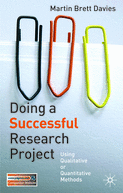November 7th, 2007 by Susan Atkey | No Comments »
The November issue of the UBC Department of Anthropology NEWS Bulletin (No. 2(2): 22 Nov. 2007) is out and available on the Anthropology department website.
As always, it includes a list of new faculty and student publications. I’ve repeated the list below including links to the UBC Library catalogue record for holdings information or direct links to the online article in those cases where we subscribe to the ejournal (as indicated by this icon:  )
)
Anzenavs, Lori Kathleen Ann. 2007. “A Place for Memory, History, and Community: A Study of Identity at the Vancouver Japanese Language School.” Pan-Japan: The International Journal of the Japanese Diaspora. 5(1&2):43-88.
Barker, J. 2007. Review of “Good Intentions Gone Awry: Emma Crosby and the Methodist Mission on the Northwest Coast” by Jan Hare and Jean Barman. BC Studies, 154 (summer): 139-140. Carroll, William K. and R.S. Ratner. 2007. “Ambivalent Allies: Social Democratic Regimes and Social Movements” in BC Studies, 154 (Summer): 41-46.
Carroll, William K. and R.S. Ratner. 2007. “Ambivalent Allies: Social Democratic Regimes and Social Movements” in BC Studies, 154 (Summer): 41-46.  Creighton, M. 2007. “International Forum of Pan American Nikkei and Overseas Japanese Highlights History of Japanese Immigration to Brazil and Networking for Globalizing Futures.” The Geppo Bulletin: A Journal of Japanese Canadian Community, History and Culture, 49(10):1. Issue highlight photo, 14, 24.
Creighton, M. 2007. “Changing Heart (Beats): From Japanese Identity and Nostalia to Taiko for Citizens of the Earth.” East-West Identities: Globalization, Localization, and Hybridization, 203-228. Leiden: Brill Press. (on order)
Kramer, J. Review of Art of the Northwest Coast by Aldona Jonaitis. Posted on Museum Anthropology Review October 23, 2007.
Creighton, M. 2007. “International Forum of Pan American Nikkei and Overseas Japanese Highlights History of Japanese Immigration to Brazil and Networking for Globalizing Futures.” The Geppo Bulletin: A Journal of Japanese Canadian Community, History and Culture, 49(10):1. Issue highlight photo, 14, 24.
Creighton, M. 2007. “Changing Heart (Beats): From Japanese Identity and Nostalia to Taiko for Citizens of the Earth.” East-West Identities: Globalization, Localization, and Hybridization, 203-228. Leiden: Brill Press. (on order)
Kramer, J. Review of Art of the Northwest Coast by Aldona Jonaitis. Posted on Museum Anthropology Review October 23, 2007.  McKellin, William H., Kimary Shahin, Murray Hodgson, Janet Jamieson, and Kathleen Pichora-Fuller. 2007. “Pragmatics of Conversation and Communication in Noisy Settings.” Journal of Pragmatics 39(12):2159-2184.
McKellin, William H., Kimary Shahin, Murray Hodgson, Janet Jamieson, and Kathleen Pichora-Fuller. 2007. “Pragmatics of Conversation and Communication in Noisy Settings.” Journal of Pragmatics 39(12):2159-2184.  O’Day, Robin. 2007. Review of “Bad Youth: Juvenile Delinquency and the Politics of Everday Life in Modern Japan” by David Ambaras. Pacific Affairs, 80(2):373-375.
O’Day, Robin. 2007. Review of “Bad Youth: Juvenile Delinquency and the Politics of Everday Life in Modern Japan” by David Ambaras. Pacific Affairs, 80(2):373-375. 
Congratulations, all! Happy reading.
Posted in Faculty Publications | No Comments »
November 6th, 2007 by Susan Atkey | No Comments »

This just in – a new guide on how to do a (successful!) research project.
“Doing a Successful Research Project is a realistic, user-friendly guide on how to conduct a research project. … It offers an accessible, even-handed introduction to carrying out research methods for undergraduate and postgraduate students conducting a research project for the first time. The research process–from planning, through design and implementation, to completion–is described simply and succinctly, with the emphasis throughout on good preparation.”
Chapter 11, called “There is more to qualitative research than interviewing“, will be of particular interest to Anthropologists, with sections on Ethnography and the anthropological tradition, participant observation, and insider research.
Sound interesting? It’s in Koerner Library stacks at H62 .D2543 2007.
Posted in What's New? | No Comments »
November 2nd, 2007 by Susan Atkey | No Comments »

Coming up next week – two workshops on using Google for academic research:
Google Scholar and More
You know that lots of scholarly journals and magazines are published on the web. But where? This workshop will show you where to look for academic articles – whether you’re starting with a bibliography, an author’s name, a topic, or just an idea.
Monday, Nov 5 from 12:00 – 1:00 PM
Buchanan B114
Googling to the Max!
Master Google’s advanced features like searching for synonyms & definitions, combining or excluding search terms, and limiting your search to scholarly information.
Friday, Nov 09 from 12:00 – 1:00 PM
Buchanan B114
Note that both of these sessions are in Buchanan B114 (not in the Koerner lab) as part of the Arts Outreach series. Can’t find Buchanan B? Here’s a map.
Posted in Workshops and Tutorials | No Comments »
October 31st, 2007 by Susan Atkey | No Comments »

In the ghostly spirit of Halloween, we offer you a few books at UBC Library on the pagan holiday:
(Photo by urban bicyclist)
Posted in Anthropology in the News | No Comments »
October 30th, 2007 by Susan Atkey | No Comments »
A reminder of tomorrow’s colloquium by Cécile Vigouroux, French Dept., SFU:
Examining Professional Vision and the Researcher’s Institutional Authority through the Examination of a Transcription Activity
“Transcription is part of any researcher’s professional practice, especially for researchers working on or with oral language. Besides being a practice, transcription has also become an object of enquiry in linguistics, especially linguistic anthropology, since the 1980s. Most of the approaches to transcription have in common the fact of examining it from the point of view of its outcome: the scription. My point of departure is different: in order to deconstruct scription, I look upstream and investigate the activity that produces it, thus focusing on the trans process”
For more details and to read the full abstract, visit the UBC Anthropology Department Colloquium page.
For related reading, see:
Vigouroux, C. (2007). Trans-scription as a social activity: an ethnographic approach.
Ethnography, 8(1), 61-97
(UBC Library subscribes to the ejournal Ethnography; click the article title to view the article.)
Posted in Talks and Seminars | No Comments »
October 30th, 2007 by Susan Atkey | No Comments »
A reminder about the Medical Anthropology Seminar today:
“Magic genes” [genies?] in a bottle: Families’ experiences with new genetic therapies for a fatal childhood illness
Christopher J. Condin, Doctoral Fellow
Canadian Institutes of Health Research – Genetics
Department of Anthropology
3:30-4:30 pm in ANSO 205
We have Christopher Condin’s 2005 MA thesis from the Department of Anthropology in Koerner Library if you’d like to read more, post-talk, on the anthropology of families and genetic therapy. It’s called “The changing meaning of gene therapy : exploring the significance of curative genetic research in the narratives of families with Duchenne muscular dystrophy” and it’s in the microform collection at AW5 .B71 2006-0024 – ask for help if you can’t find it.
Posted in Medical Anthropology, Talks and Seminars | No Comments »
October 29th, 2007 by Susan Atkey | No Comments »

You’ve likely heard about RefWorks, the online citation management tool that allows you to save references for your research paper from online databases such as AnthropologyPlus and Google Scholar, and then formats your paper in the citation style of your choice. Perhaps you’ve had a chance to get started with RefWorks, but need some help in using its many features.
Tuesday is your chance to find out more! Come to Koerner Library for a RefWorks session from 1:30-3:30pm.
In this hands-on workshop you will create your own personal database in RefWorks, learn how to add references, and use these references when writing a paper, automatically formatting your footnotes and bibliography in the citation style of your choice.
Register for the session here.
Posted in At the Library, Workshops and Tutorials | No Comments »
October 26th, 2007 by Susan Atkey | No Comments »
One of the ways researchers can keep up to date with new publications in areas of research interest is to sign up for Table of Contents alerts for key journals – the electronic equivalent of coming to the library to browse new issues of a favorite print journal, with a few key differences:
- Electronic Tables of Contents often arrive before the actual journal is published, so you get advance notice of upcoming articles.
- The information comes to you, rather than you going out to the library for the information.
Interested? Read on!
Setting up Table of Contents Alerts
First, you’ll need to find an alerting service for the journal you’re interested in. That’s easy enough – many journal publishers offer this service on the journal home page. Look for words like “email alert” or “Table of Contents alerts”. (For examples, see here or here)
Next, you’ll need to setup your alert profile. This step varies by publisher. In brief, you’ll need to set up an account, select your journals, and save your profile.
Let’s take a look at setting up an alert in Anthrosource, the collection of journals published by American Anthropological Association (AAA), including American Anthropologist and Journal of Linguistic Anthropology:
Next week, we’ll look at ways to get search alerts from other databases.
Posted in Current Awareness | No Comments »
October 19th, 2007 by Susan Atkey | No Comments »

Students in Dr. Alexia Bloch’s ANTH 312 (Gender Relations) and ANTH 495 (Gender, Migration, and Globalization) classes may be interested in the “9th Annual International Drag King Community Extravaganza” this weekend. Drag Kings from around the world take the stage, teach workshops, put on live performances, and cause a general gender ruckus. For more information, see the website at http://www.idkevancouver.com/.
Want to read more? These books at UBC library will get you started:
The drag king anthology / edited by Donna Jean Troka, Kathleen LeBesco, Jean Bobby Noble
In a queer time and place : transgender bodies, subcultural lives / Judith Halberstam
Unzipping gender : sex, cross-dressing and culture / Charlotte Suthrell.
The transgender studies reader / edited by Susan Stryker and Stephen Whittle.
UBC Library also subscribes to a number of ejournals on gender and sexuality, including:
International Journal of Sexuality and Gender Studies
Journal of Gender Studies
Gender and Society
—–
(Photo credit: Sabrina’s stash)
Posted in Uncategorized | No Comments »
October 17th, 2007 by Susan Atkey | No Comments »
Dr. Bill McKellin of the Anthropology Department forwarded a segment from CBC Radio’s The Current this morning on Human Terrain Systems:
“Some say it’s humanizing the military. Others charge that it’s militarizing the profession of anthropology. What’s at issue is something called Human Terrain Systems, a new Pentagon counter insurgency initiative in Iraq and Afghanistan.
At the heart of each team is an anthropologist who conducts field research on the local people and helps military commanders make more effective decisions on the ground. The Pentagon is in full support pledging that there will eventually be two dozen of these teams – one with every brigade operating in Iraq and Afghanistan.”
You can listen to an edited audio file of the program here.
Thanks to Greg Feldman for following up with a note about the Network of Concerned Anthropologists, of which he is a founding member, along with 9 others including Roberto Gonzalez who gives the counterpoint in the broadcast to the Human Terrain Systems. The Network of Concerned Anthropologists asks anthropologists to sign a pledge as a way of saying that “anthropologists should not engage in research and other activities that contribute to counter-insurgency operations in Iraq or in related theaters in the “war on terror.””
The site has a list of background reading on this complex ethical issue at:
http://concerned.anthropologists.googlepages.com/articles
Many of the linked articles are freely available; the other journals (such as Anthropology Today and Anthropology News) are subscribed to by UBC Library, so as long as you’re on campus or using the VPN you will be able to access them.
Posted in Anthropology in the News | No Comments »
![]() )
)










